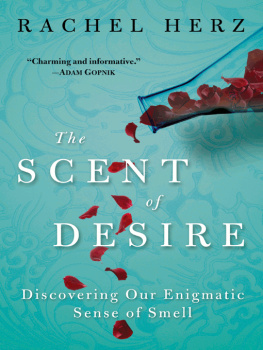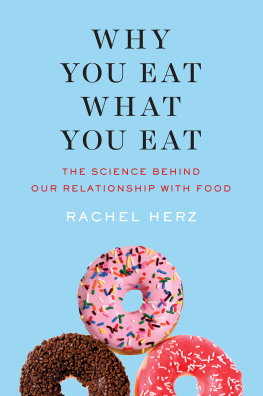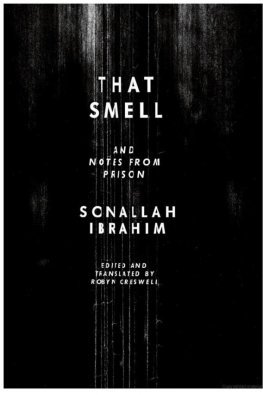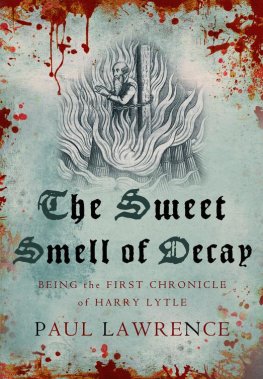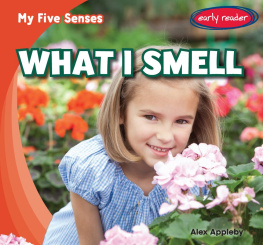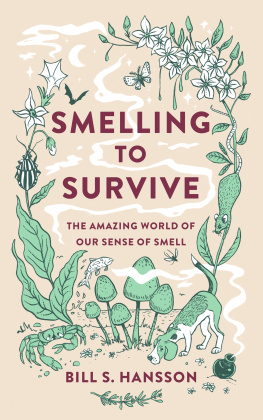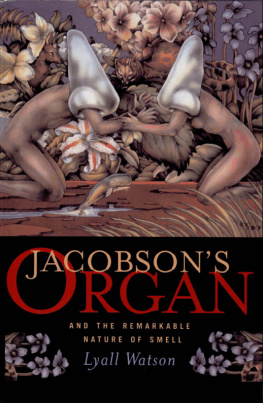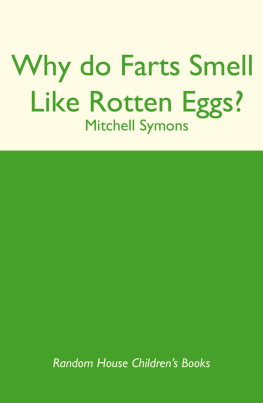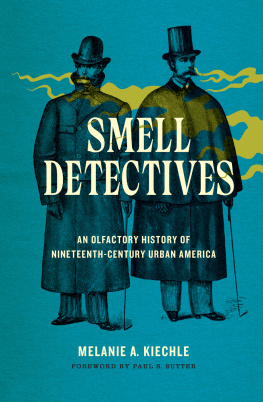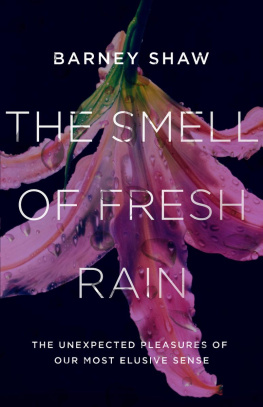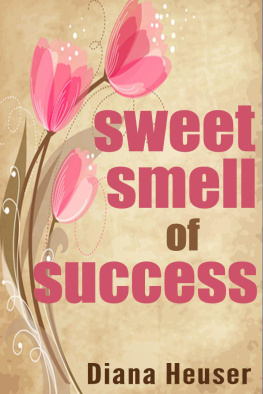I would like to tell you that my fascination with the sense of smell began at the age of five when I was pulled out of bed one Sunday morning by the aroma of French toast and maple syrup. The facts, however, are somewhat different.
When I was five years old we went for a drive one summer afternoon. The sun was shining, the cicadas were singing, everyone was in a good mood, and the wind blew warm against my face. I remember staring out the car window into blurs of green and yellow grassy fields with the outlines of tall trees pressed against a big blue sky, when suddenly I smelled something strange and pungent. Almost at that exact moment I heard my mother exclaim: I love that smell! What is it? I asked her. Skunk, she said with a smile. And from that day on I loved the smell of skunk. I did not realize this was abnormal until a year or so later, when playing in the schoolyard, I told some friends of my predilection for this scent. I expected nods and maybe some stories about bucolic adventures, but instead my innocent comment was met with derision. Youre weird! Thats gross! they chorused, as they ran away.
Why did my schoolmates think this scent was awful and I didnt? I quickly learned that most people shared my schoolmates reaction and that it was best not to admit this particular scent preference. But to my relief, when I got older, I discovered a number of other self-confessed skunk scent lovers like myself. Why do I and a bashful minority like a smell that most people find foul? What makes me different from you this way? Or maybe you are also like me. Why do any of us like any particular scent and not another? One of the many things you will discover in this book is why you do or dont like the various scents in your world.
Even before my childhood car ride, where I discovered the joy of skunk aroma, I was fascinated by smell and indeed all things sensual. I have never been satisfied with merely looking at things but am always impelled to touch and smell objects, at least when it is socially acceptable. I have also always been very sensitive to sounds, many of which I adore, but loud noises are often too much for me, and I only like fireworks displays from a distance. Indeed, watching dancing, exploding lights; the stars; mountains; and the green-blue sealooking at nearly everythingis among my sensual passions. And of course I am ravenous for the pleasures of food. A few epicurean friends and I have formed and dubbed ourselves the savor the flavor club. But, above all of the other senses, smell has always held a special allure and been a mystery to me. Not only is scent beguiling to me and probably to you, too, it is also one of the few remaining scientific enigmas. Many aspects of our sense of smell are still inscrutable to science, and in my professional career exploring its psychological riddles has been my main objective.
My goal to understand the puzzles of smell had been gathering energy ever since I pondered why my scent preferences were not exactly like those of others, but I didnt realize it until many years later. One of the pivotal kernels in laying the foundation for my future endeavors occurred when I was an undergraduate student. It was my last year of college and I was studying for the Graduate Record Exam (GRE). I came across a statement in the general psychology section of the study guide that indicated the answer to a particular question was that smells were the best cues to memory. Why? I wondered. Is this really true? I asked my honors adviser what he knew about this. He confessed to not knowing why or if this was exactly true, but he had accepted the received wisdom and believed it to be based on brain interconnections. I tucked this curiosity into the pseudoconscious corner of my brain, and it waited to be awakened several years later.
That moment of awakening came during a course I took in graduate school. The course was a social psychology seminar, where I came across an article in which the researchers had chosen a surprisingly innovative way to manipulate mood. Rather than the standard verbal or imagery techniques, they had chosen odors: a pleasant odor, almond, for good mood, and the distinctively sour odor, pyridine, for bad mood. The researchers argued that smell was fundamentally connected to emotion, and that there was biological and evolutionary evidence underlying this connection. Their evolutionary argument was particularly compelling to me, because before ever delving into scent I was lucky to have made the mistake to study animal behavior. A mistake for me, that is, because my heart wasnt in it. But what I did learn during this period, and what I then became a devotee of, was evolutionary theory. Evolutionary theory has been a guiding light in my search for meaning and direction regarding the mysteries of smell. You will find evolutionary theory and biological approaches mentioned throughout the pages of this book.
My discovery of this article with its evolutionary arguments and the intriguing use of scent to elicit emotion was a stroke of good fortune, and it struck a deep and resonating chord. I suddenly saw a light at the end of the tunnel, and the days of searching for a dissertation topic to be truly inspired by were resolved in that moment. Thus began my first olfactory missionto find out whether that GRE statement was really true. Are odors the best triggers for memories? And what does that mean anyway? It was during this time that I began to unravel the connection between scent and emotion and memory.
T HE DECISION TO STUDY SCENT was not an easy academic path to pursue, because academia, embedded in culture as it is, until very recently did not deem smell to be an important topic to study, just as most of us ignore and take for granted this fifth sense. Fortunately, during my graduate student days, I had an open-minded dissertation adviser, and one of the most important things he taught me was that no one person or theory has the complete answer to any question. This has been an essential position to take for studying the sense of smell. Unlike the other senses, whose basic mechanisms have already been exposed, the Rosetta stone of olfaction has yet to be revealed and will only be fully realized with a convergence of multidisciplinary methods and theoretical approaches.
It was also during my graduate student days at the University of Toronto that I read Diane Ackermans gorgeously written Natural History of the Senses . I felt vindicated that, while the ivory tower didnt give much credence to the intrigues of olfaction, Ackerman devoted a fifth of her book to this marvelous sensory system; her passionate and beautiful prose planted the seed in my mind that one day I would like to share my journey with the sense of smell with others.
Without too much fumbling in the dark my dissertation quest into the singularities of scent-evoked memories was a success, and you will learn what those unique features are in the pages to come. I then traveled westward to a postdoctoral position at the University of British Columbia where, among other things, I discovered how odors can be used to help us remember all kinds of diverse information. After my postdoctoral fellowship, I began my faculty career at the Monell Chemical Senses Center in Philadelphia, where I spent six years. I then moved to Brown University in Rhode Island in 2000, where I have been academically housed ever since.
In my nearly two decades of work in olfaction, I have uncovered how and why we like or dislike scents and what is special and different about memories evoked by fragrances. I have uncovered how emotion is a central and fundamental feature of odor perception, odor learning, and odor memory. I have also looked at how the intimate connection between scent and emotion can influence our behaviors. Other avenues I have investigated include how words can be used to create olfactory illusions, and how scents can igniteor extinguishsexual attraction. I will reveal these secrets of olfaction to you in this book.

